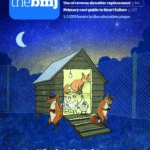
Just three-in-ten believe grief supports are sufficient – survey
Research conducted by the Irish Hospice Foundation found that only 30% of the public feel there are enough supports available for those who have experienced loss. The research also revealed that half of Irish people struggle to know how to support someone who is grieving, and discussions around death and dying are insufficient. National Grief…














